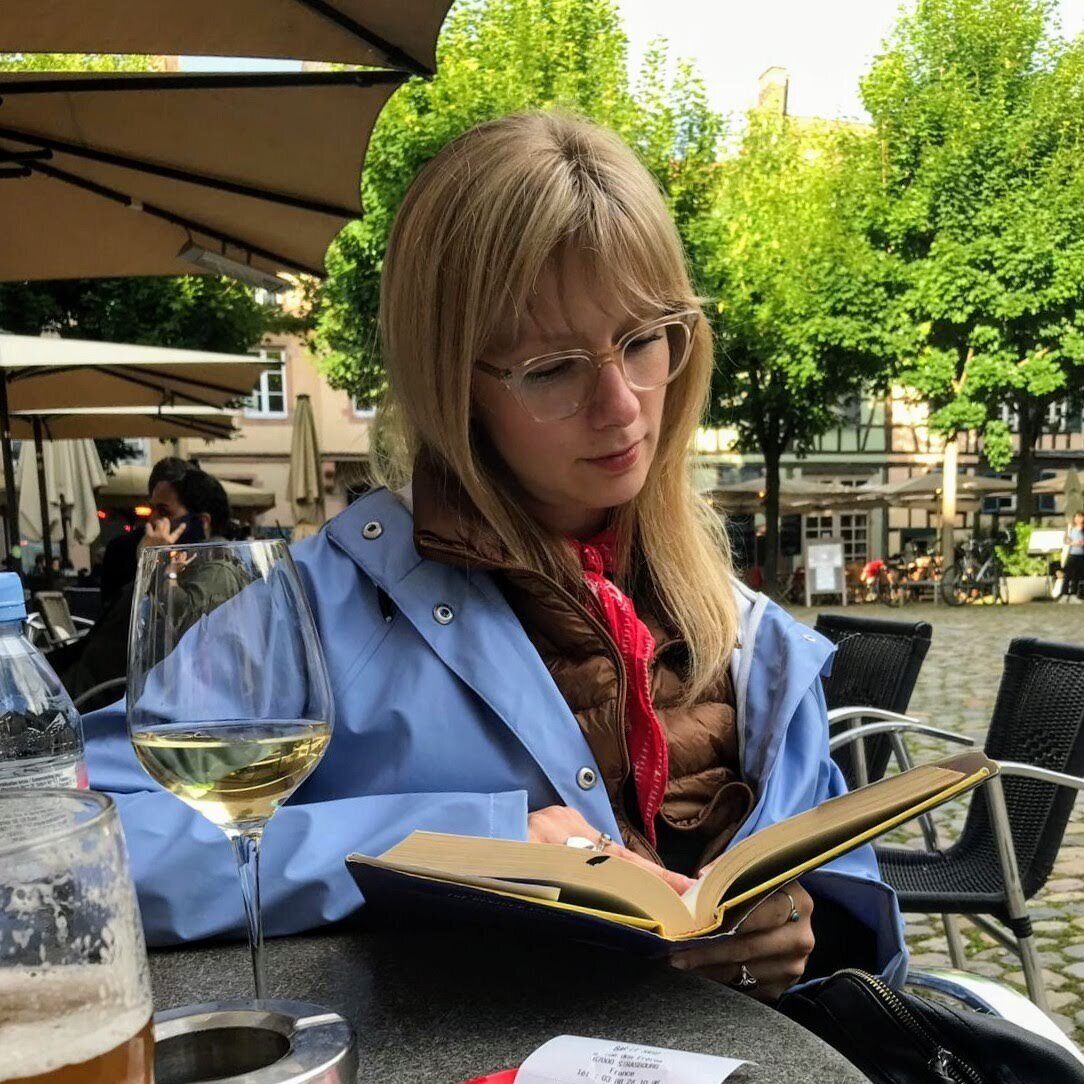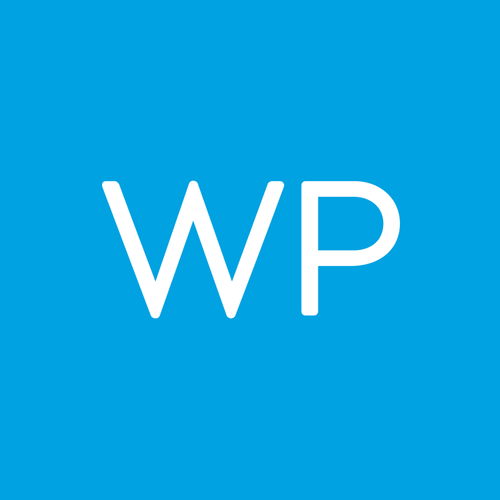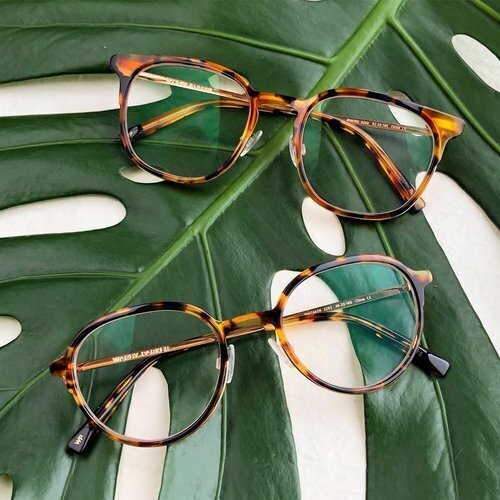BABE #325: LINDSAY BOWYER - Waitress, Museum Educator, Artist
Lindsay is a museum educator, waitress, artist, mother and our very own book club coordinator. With such a multifaceted hustle, her days shift from educating others on thought-provoking art and working on lesson plans to providing excellent dining service and creating art of her own. No matter the role, Lindsay gives it her all. She’s dedicated to sharing her knowledge with passion and a genuine nature that’s often hard to come by. We’re endlessly impressed by her dedication, intellect and resiliency and feel incredibly lucky to know her as a colleague, friend and a trusted source on all things art, hospitality, literature and beyond.
The Basics:
Hometown: I was born in Dallas and lived there until I was 8, but I feel more Floridian than Texan!
Current city: Jacksonville, Florida
Alma mater: University of North Florida
Degree: B.A., Art and Art History
Very first job: Washing dogs and cats at an animal hospital
Hustle: Waitress, Black Sheep Restaurant; Museum Educator, MOCA Jacksonville; Artist, Honey Poison
The Interests:
Babe you admire and why?
Maybe it’s cliché to say, but my mom. She changed careers in her 50s and is crushing it in a male-dominated industry. She’s always been a hard worker and she’s the first person I go to when something at work has me down.
How do you spend your free time?
I love to read, tend my plants, and be outside when the weather cooperates.
Go-to coffee order and/or adult beverage?
I take tea instead of coffee, and for adult beverages it’s a dead tie between a manhattan and a paloma.
What would you eat for your very last meal?
Shrimp and grits with a cold beer.
What’s something you want to learn or master?
A foreign language. I speak a little French, but I would love to get better at it; maybe learn Spanish and some ASL as well.
If you could have coffee with anyone in the world, who would it be?
Jane Goodall.
What’s something most don’t know about you?
I’m really good at voices and accents. My daughter still requests my Professor McGonagall voice from our days of reading Harry Potter together.
The Hustle:
Tell us about your hustle.
At MOCA I work as a general museum educator, which involves a good amount of public interface. I give tours to visitors of all ages, I teach lessons during camp, and occasionally I represent the museum at outreach events. My work as a waitress at Black Sheep is pretty self explanatory, of course. I will say that working there has really expanded my knowledge of fine cuisine; guests sometimes (unnecessarily) remark that I don’t look like someone who enjoys eating, but nothing could be further from the truth! Honey Poison is a one-woman show that I tend to as often as time permits.
Walk us through your typical day.
My day can vary depending on the time of year. Summer is the busiest time of year at MOCA because of summer camp. I’m usually up before the sun so I can work out, get myself ready, get my daughter ready, take her to her own summer camp, then go to work. I spend part of the summer teaching, which I love despite how exhausting it can be. Other times I assist other teachers as needed and prep materials for our lessons. During the school year I frequently start my day giving tours, sometimes back-to-back if we’re busy, usually to school children. I leave in time to pick up my daughter from school, sometimes we enjoy ice cream or a chai latte together to relax. On the weekends I usually have just enough time to go home and change before working a second shift at the restaurant. I’m very lucky to be healthy and able-bodied enough to work such a rigorous schedule; sometimes I work seven days a week.
What’s your approach to educating people about art?
My mindset behind sharing and educating others about art is that no one should ever feel like art isn’t for them. Art is possibly the most human activity there is; no other species creates visual works for their own sake, so why shouldn’t every person be able to enjoy art? There’s a lot of elitism and exclusivity in the professional art world, and I take my job of overcoming those barriers very seriously. My favorite moments at work happen when I watch people’s faces as they connect with a work of art, especially if they didn’t start out in that place of openness. I think I encounter people with this block more frequently in a modern art museum because so much of contemporary art pushes the boundaries of what we’re all taught to consider as art, even what we’re taught to think of as beautiful. I think it’s really important to reiterate to visitors (especially children) that it’s OK not to like all art. There are loads of artists who intentionally make art that is visually and intellectually challenging, because they’re more interested in what that art will make us feel and think and the questions it will make us ask of ourselves and each other.
What was your inspiration behind Honey Poison?
Honey Poison honestly wouldn’t exist if it weren’t for the inspiration of other woman artists I have been following on social media. Personal, handmade products are on the rise and as with many points in human history, women are leading this movement. Folk art and handicraft have long been dismissed as “lower forms” of artistic expression, especially once these mediums were no longer considered artisan craft forms dominated by men. For me, embroidery functions as a form of resistance. I only embroider by hand—no machines—so it’s a slow art form in an age of mass production and Amazon prime for literally everything. It’s meditative, requiring patience and focus; you can’t scroll and stitch! And, it’s a traditionally “feminine” art form that I’m utilizing to make deeply personal artwork. My images frequently feature bones, skulls, insects, and snakes; a lot of those make people uncomfortable. My earlier work had a little more naturalism, which I continue to enjoy, but I was still finding my feet. Now, I’m expanding further into drawing and mixed media, which was actually my focus for years, so it feels like it’s naturally coming full circle.
How has being a woman affected your professional experience?
Being a woman in the service industry makes me more vulnerable to harassment. There’s research supporting that workers less reliant on tips experience less harassment, and I think that would make a huge difference in the space women occupy in the industry. All servers are expected to be pleasant, hospitable, and accommodating, but this expectation is wildly abused when the server is a woman. Do I tell off this creepy guy and risk losing money? Do I tell management and risk potentially losing money for the restaurant or being seen as not tough enough? Having a higher minimum wage for servers would mitigate a lot of these issues. As for the arts industry, I think having more women in leadership positions is vital. It’s not a cure-all of course—even galleries run by women feature mostly male artists, but I think it’s the first and most significant step in the right direction. More women as curators, directors, and board members, and more visibility and pay funneled down to the jobs women are already working in these spaces could not only improve the professional climate for women in museums, but would benefit museums as social institutions.
Are there any female-specific challenges you face in your work?
A challenge for many women across industries is having their work taken seriously, and this is shown to be particularly acute in industries that are majority-women (teaching, hospitality, service, etc). I’ve witnessed open favoritism for men at both my jobs, and it can be as nuanced as a guest asking a man about their work while showing zero interest in the work my all-female department does. This is such a broad issue that’s so much larger than me, it can be daunting to even think about. Last year I was approached about an opportunity to represent MOCA in some public programming in conjunction with the Jacksonville Symphony orchestra. (Another employee had originally been tapped to do it but had a scheduling conflict.) I got to share the stage with the associate conductor, the director of artistic administration, and an extremely gifted organist—all of whom were men—and give a small presentation on a Russian artist. I felt like it was the first time I was really treated like an authority in my field of study, and because of the meticulous research I did to prepare, I actually felt like one. It was so exhilarating. I was so proud of myself.
What’s the gender ratio like in your industry?
Interestingly enough, the service industry and museums/galleries have similar issues when it comes to gender ratios. Both industries have majority-women staff, but when it comes to management, director, and board positions, the scale slides drastically to majority white male—sometimes as high as 85 percent. The three top museums in the world (The Met, the British Museum, and the Louvre) have never had a female director. This disparity is even further compounded because while women outnumber men in fine arts studies, they are wildly underrepresented in galleries and museums. Only 8 percent of North American and European galleries represent more women than men, and less than 14 percent of living artists represented in these galleries are women. Thus, not only are fewer women running our art spaces, fewer women have their work shown in them, despite almost half of visual artists in the United States being women. We can certainly see progress from the hundreds of years prior, when making fine art was considered too emotionally rigorous for women and we weren’t allowed to study nude figures—but I’m sure most people would agree that’s a pretty low bar to set. I think there’s some change happening, but I would argue it’s not happening nearly fast enough, and a lot of that has to do with good old fashioned gatekeeping and gender bias. Sadly some of that gets enforced by women as well as men, so it’s a tough nut to crack.
How has your experience as a mother influenced your career?
If there’s one word all moms know the meaning of, it’s “sacrifice.” For me, that’s meant working jobs that don’t necessarily have an ideal career arc but instead give me the most time with my daughter. It’s also meant having to take a long, hard look at my goals and dreams to evaluate what’s feasible and what’s not. I always wanted to get my MFA, but there’s a lot of studio hours that go into that (it’s not exactly a degree you can earn online), not to mention the significant financial investment. Unfortunately in a city like Jacksonville, there’s limited opportunity to get a return on such an investment, so I’ve had to ask myself if it’s what’s best for my family unit, or just something I want for myself. By the time my daughter turns 18, I won’t even be 40 years old; would such an investment put me in a good position to fund her college education? How important is it to me to be able to buy a house? And what about retirement? Being a mom definitely forces you to think long-term, and that can squash a lot of spontaneity. I often look at people I know who switch careers or jobs or cities with envy, and I’m definitely guilty of torturing myself with that most persistent question of “what if?”. However, being a mom also makes me a good worker in a lot of ways. I’ll never be the employee who calls out unnecessarily or leaves without notice. It also serves as an automatic boundary: Will this or that job force me to give up more time with my daughter? What are the benefits? Will it be worth it?
Are you involved with any side projects?
A few times a year I volunteer with the North Florida branch of the Sierra Club, our nation’s oldest conservation advocacy group. Their motto is “explore, enjoy, protect,” and they do some truly incredible work in the fight to preserve our wild places. The majority of other volunteers I encounter through them are older women, and I find that so inspiring.
Who are some women in your field that you look to for inspiration?
I really admire and respect Hope McMath, who directs Yellow House. She’s an incredible example of someone using art and their privilege to build a bridge of accessibility for less visible and underserved communities. (If you’re reading this Ms. McMath, do you need an intern?)
Career and/or life advice for other babes?
Stop swallowing those small indignities and advocate for yourself; don’t count on anyone else to. A male coworker once snapped at me for questioning some of his work, and it was aggressive enough that other workers in the area visibly reacted. However, none of them said a word to him, so I went straight to our superiors and told them about the incident. They told me I wasn’t the first person to have such an experience with this particular employee. Later, a witness to the whole thing (another male) asked me if it had really affected me that much. I had to explain that the issue wasn’t personal, my feelings weren’t hurt, I was just tired of being talked down to for doing an important part of my job (which is to make sure the company’s product is presented consistently). Set aside your fears of looking like a bitch/a baby/high-maintenance, nd don’t let anyone talk to you as less than equal.
In partnership with: Warby Parker
Warby Parker is home to a trendy, socially-conscious eyeglass collection (with a kickass startup success story.) We're big fans of their Home Try-On Program, where you can select 5 different frames online, have them delivered to your door, take 'em for a spin, pick out your faves, then send them all back — all before spending a dime. Learn more about it here.
*This is an affiliate partnership. That means when you shop using the links we provide, a portion of your purchase comes right back to us, so we can continue creating content that matters. Of course, we only promote brands and products we genuinely stand behind. Thank you so much for your support!
Interested in advertising with us? Email us!
Join our community:
Instagram / Facebook / Twitter / Newsletter / Job Board / Partnerships / Shop












